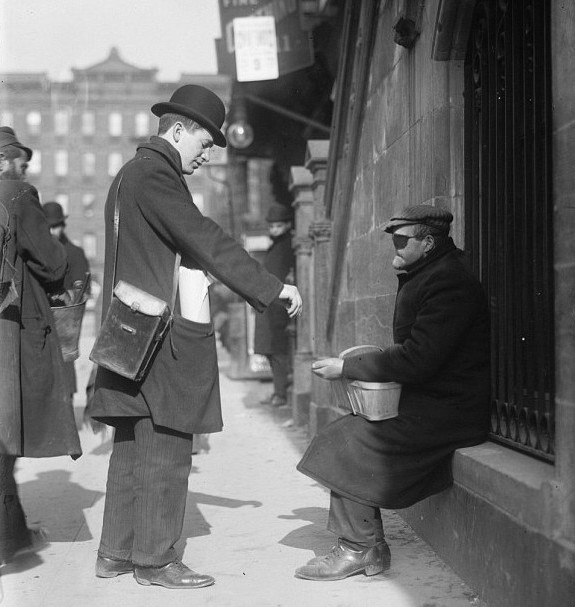Effective Altruism is certainly better than doing no good at all, and belittling its true believers while doing less than them doesn’t make anyone morally superior, but there’s something of Pangloss’ misplaced confidence in believing back-of-the-napkin “moral calculations” and “philanthropic formulas” can cure the ills of a spinning, jagged world resistant to such neat solutions. While EA adherents clearly don’t think the rising tide of consumerism will, on its own, lift all boats, they do feel enough people using rigorous logic to co-opt capitalism to benefit those less fortunate is the most effective life preserver.
In “Stop the Robot Apocalypse,” her excellent if misleadingly titled London Review of Books piece about William MacAskill’s Doing Good Better, Amia Srinivasan wonders about this system of charity that’s certainly more nebulous than Utilitarianism. She asks, among other things, if the participation of Effective Altruists in capitalism actually perpetuates and exacerbates the wrongs they purport to heal. She also questions if it’s wise to icily wring all emotion from decisions about the “worthiness” or “arbitrariness” of a cause.
An excerpt:
Doing Good Better is a feel-good guide to getting good done. It doesn’t dwell much on the horrors of global inequality, and sidesteps any diagnosis of its causes. The word ‘oppression’ appears just once. This is surely by design, at least in part. According to MacAskill’s moral worldview, it is the consequences of one’s actions that really matter, and that’s as true of writing a book as it is of donating to charity. His patter is calculated for maximal effect: if the book weren’t so cheery, MacAskill couldn’t expect to inspire as much do-gooding, and by his own lights that would be a moral failure. (I’m not saying it doesn’t work. Halfway through reading the book I set up a regular donation to GiveDirectly, one of the charities MacAskill endorses for its proven efficacy. It gives unconditional direct cash transfers to poor households in Uganda and Kenya.)
But the book’s snappy style isn’t just a strategic choice. MacAskill is evidently comfortable with ways of talking that are familiar from the exponents of global capitalism: the will to quantify, the essential comparability of all goods and all evils, the obsession with productivity and efficiency, the conviction that there is a happy convergence between self-interest and morality, the seeming confidence that there is no crisis whose solution is beyond the ingenuity of man. He repeatedly talks about philanthropy as a deal too good to pass up: ‘It’s like a 99 per cent off sale, or buy one, get 99 free. It might be the most amazing deal you’ll see in your life.’ There is a seemingly unanswerable logic, at once natural and magical, simple and totalising, to both global capitalism and effective altruism. That he speaks in the proprietary language of the illness – global inequality – whose symptoms he proposes to mop up is an irony on which he doesn’t comment. Perhaps he senses that his potential followers – privileged, ambitious millennials – don’t want to hear about the iniquities of the system that has shaped their worldview. Or perhaps he thinks there’s no irony here at all: capitalism, as always, produces the means of its own correction, and effective altruism is just the latest instance.
Yet there is no principled reason why effective altruists should endorse the worldview of the benevolent capitalist. Since effective altruism is committed to whatever would maximise the social good, it might for example turn out to support anti-capitalist revolution. And although MacAskill focuses on health as a proxy for goodness, there is no principled reason, as he points out, why effective altruism couldn’t also plug values like justice, dignity or self-determination into its algorithms. (There’s also no reason why one couldn’t ‘earn to give’ to help radical causes; Engels worked at a mill in Manchester to support Marx’s writing of Capital.) Effective altruism has so far been a rather homogeneous movement of middle-class white men fighting poverty through largely conventional means, but it is at least in theory a broad church.•

